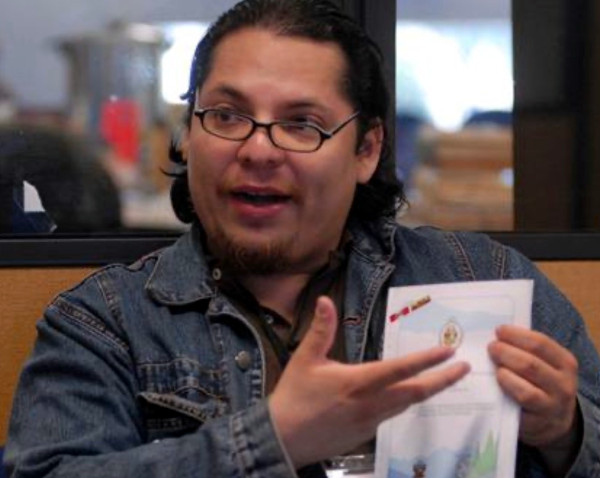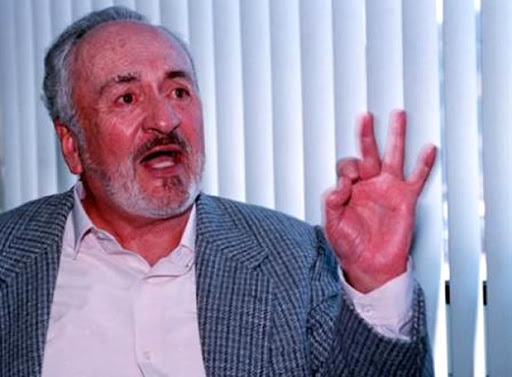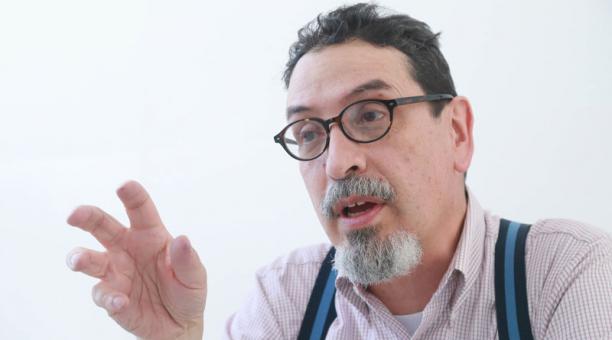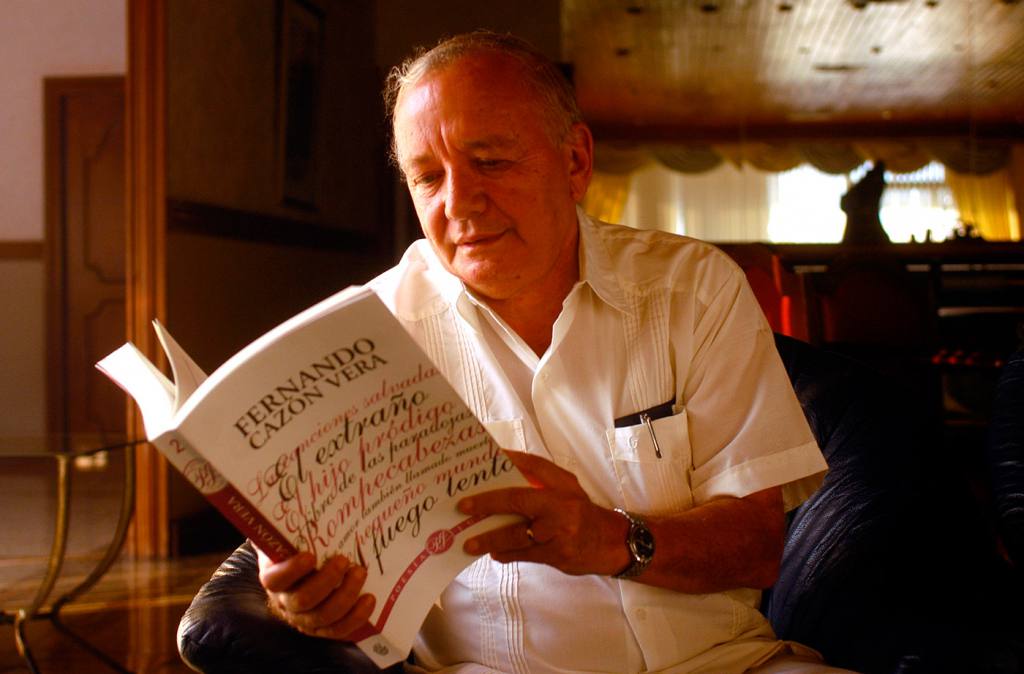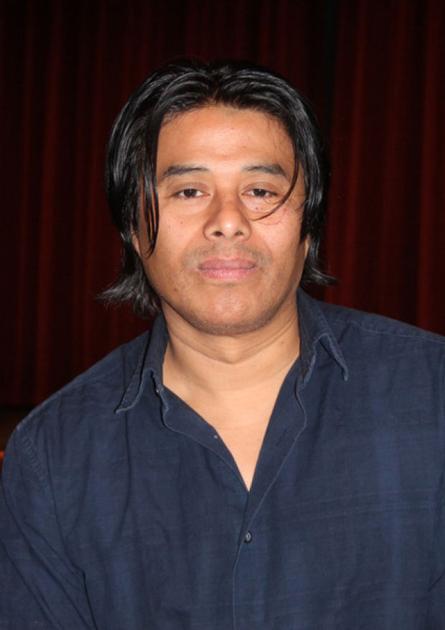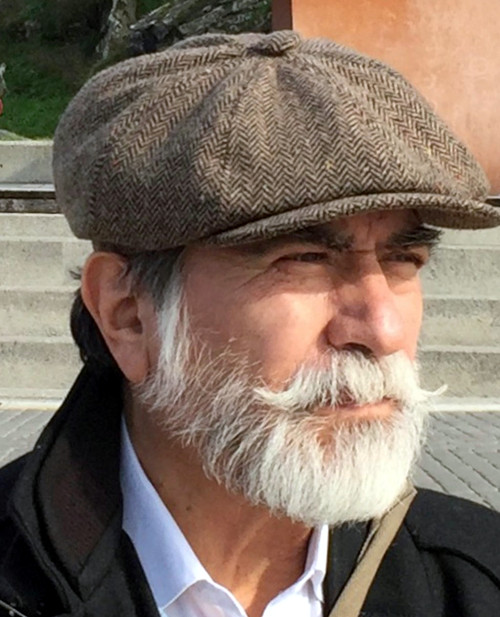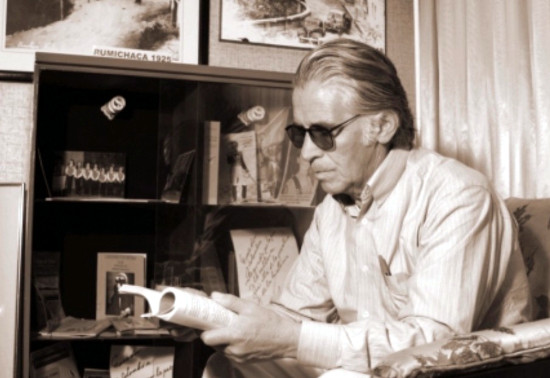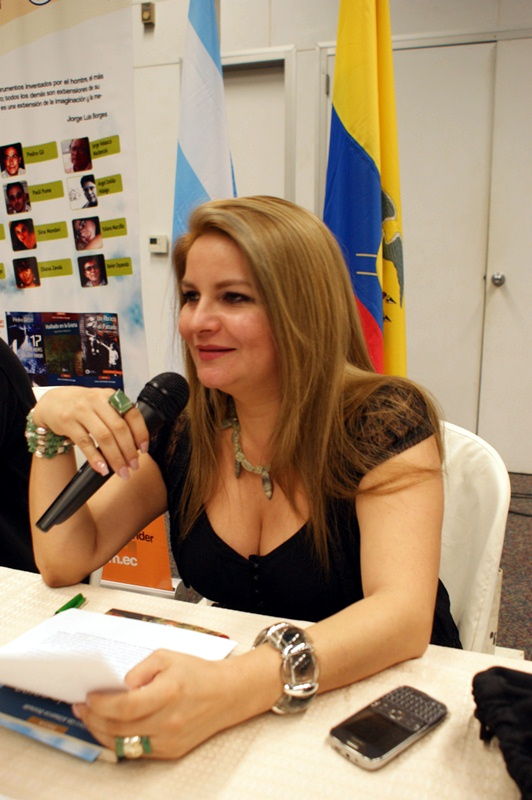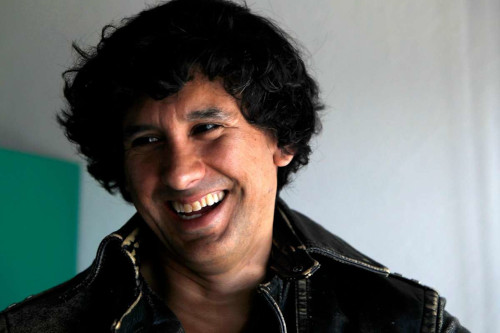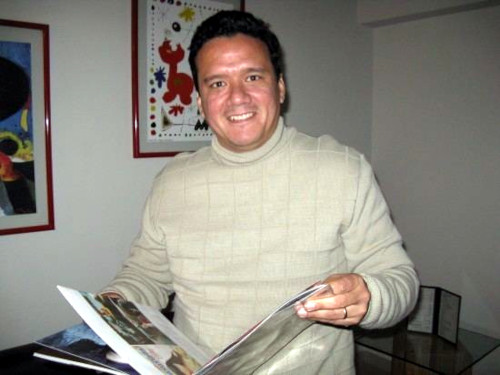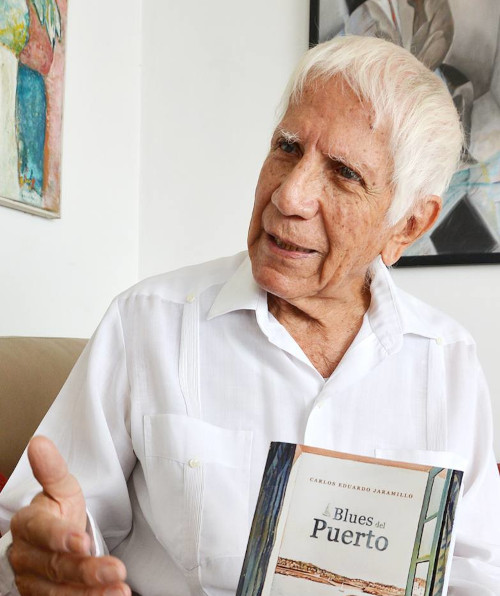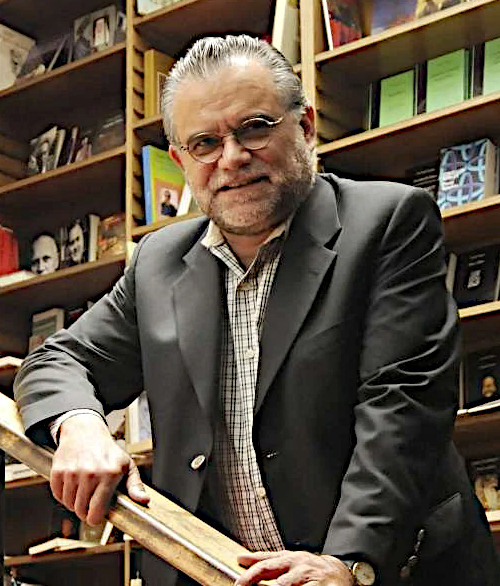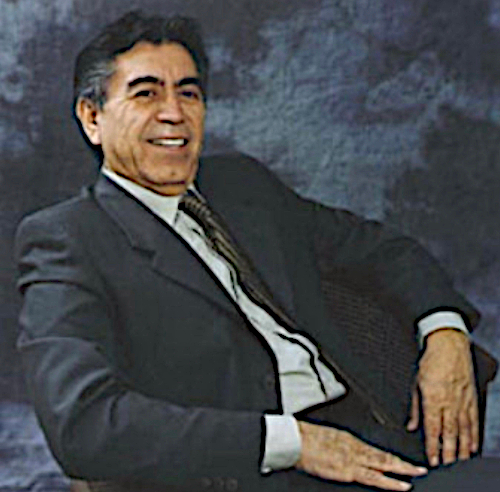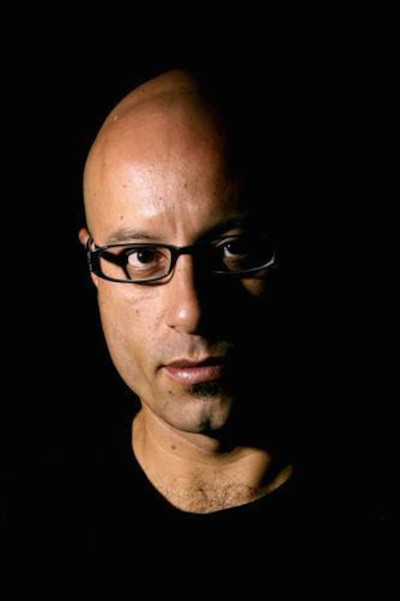Miguel Antonio Chávez Balladares (Guayaquil, June 7, 1979) is an Ecuadorian novelist and short story writer. His first short story book was Círculo vicioso para principiantes (2005). It was followed by the novel La maniobra de Heimlich (2010), the theater piece La kriptonita del Sinaí y otras piezas breves (2013), and the novel Conejo ciego en Surinam (2013). In 2007 he was a finalist for Radio France Internationale’s Juan Rulfo Prize with the story La puta madre patria. In 2011 he was named “one of the 25 best kept secrets in Latin American literature” by the Guadalajara International Book Fair.
Continue reading “Miguel Antonio Chávez”Category: 21st Century Writers
Francisco Granizo Ribadeneira
Francisco Granizo Ribadeneira (Quito, November 8, 1925 – January 21, 2009) was an Ecuadorian poet, professor and diplomat. He was a professor at Ecuador’s Central University and the director of the House of Ecuadorian Culture’s radio station. He published several poetry books, including “Por el breve polvo” (1948), “La piedra” (1958), “Nada más el verbo” (1969), “Muerte y caza de la madre” (1978), “Sonetos del amor total” (1990) and “El sonido de tus pasos” (2005). He also wrote a verse drama, “Fedro” (2005). In 2001, he published his only novel, “La piscina,” for which he received the Joaquín Gallegos Lara Prize for best novel of the year. Through the protagonists Fernando and Lilí, the book examines loneliness and the impossibility of finding love, two frequent themes in Granizo’s works.
Continue reading “Francisco Granizo Ribadeneira”Santiago Páez
Santiago Páez Gallegos (Quito, 1958) is an Ecuadorian writer known for his novels, short stories, and science fiction works. In his youth, he traveled through the jungles of the Ecuadorian coastal region, lived in the mangroves of Esmeraldas province, and explored the highlands of the central inter-Andean region. At the age of 19, he wrote his first novel but was dissatisfied with it, leading him to stop writing for about 11 or 12 years. During his time in Madrid studying and caring for his newborn son, Páez found solace in writing science fiction stories during his sleepless nights. This experience reignited his passion for writing, prompting him to focus on fiction and pursue an academic career. After obtaining his doctorate in Madrid, he returned to Quito in 1990. Páez is currently a professor at the Pontifical Catholic University of Ecuador. Among his notable works are novels like “La reina mora” (1997), “Pirata Viejo” (2008), and “Olvido” (2010), as well as short story collections such as “Profundo en la galaxia” (1994) and “Ecuatox” (2013). Páez has received recognition for his writing, including the Joaquín Gallegos Lara Award for his short story collection “Profundo en la Galaxia” (1994) and the Darío Guevara Mayorga Award for his book “El secreto de la ocarina” (2009) and the crime novel “Retratos De Dios” (2016).
Continue reading “Santiago Páez”Fernando Cazón Vera
Fernando Cazón Vera is an Ecuadorian poet, columnist, editor, and university professor. He was born in Quito on June 5, 1935 and has lived in Guayaquil most of his life. He comes from a family of well-known cultural figures in Ecuador, including his uncles Pedro Jorge Vera (1914-1999), who was an acclaimed writer, and Alfredo Vera Vera (1910–1999), who as Minister of Education promoted the establishment of the House of Ecuadorian Culture in 1944, in addition to his cousin Noralma Vera (1936-), an important figure of the Ecuadorian ballet. His first book of poetry, “Las canciones salvadas,” was published in 1957 by the House of Ecuadorian Culture after being read and championed by the organization’s founder, Benjamn Carrión. He has worked as a columnist or editor for newspapers and magazines such as La Hora, Expreso, Extra, La Nación, and La Razón for more than 50 years. He was twice president of the House of Ecuadorian Culture’s Guayas chapter. President Lenin Moreno bestowed Ecuador’s highest honor, the Eugenio Espejo Award in Literature, on Cazón in 2018.
Continue reading “Fernando Cazón Vera”Ernesto Quiñonez
Ernesto Quiñonez is an American novelist born in Ecuador in 1969. He was raised in Spanish Harlem, New York City, by a communist father from Ecuador and a Jehovah’s Witness mother from Puerto Rico. He is a product of public education from kindergarten to his Masters at the City College of New York where he studied under the American novelist Walter Mosley. Quiñonez’s debut novel, Bodega Dreams, was published in 2000, which the New York Times declared “a New Immigrant Classic”. In an interview with Publisher’s Weekly, Quiñonez said “My goal, in all three of my books, including Chango’s Fire, is to bring magical realism to the barrios, make it more urban.” His work has received the Barnes & Noble Discover Great New Writers designation, the Borders Bookstore Original New Voice selection, and was declared a “Best Book” by the New York Times and the Los Angeles Times. He is currently an Associate Professor at Cornell University where he teaches Narrative Writing and Honors Essay Tutorial courses.
Continue reading “Ernesto Quiñonez”Iván Oñate
Iván Oñate (Ambato, Ecuador, 1948) is an Ecuadorian poet and fiction writer. He has published 8 poetry books and 2 short story books, and his works have appeared in various anthologies.
Continue reading “Iván Oñate”Sonia Guiñansaca
Sonia Guiñansaca (Cuenca, 1989) is a migrant poet, cultural organizer and activist whose work aims for culture equality and social justice, focusing on migrant rights, climate change, LGBTQ+ rights, and gender discrimination. At the age of 5 Guiñansaca migrated to the United States to reunite with her parents in New York City.
Continue reading “Sonia Guiñansaca”Luis Enrique Fierro
Luis Enrique Fierro (Tulcán, Carchi Province, November 14, 1936) is an Ecuadorian physician, writer and poet. His literary portfolio includes poetry collections like “Baratillo de esperanza,” “Metástasis,” “Arrecife,” “De Muelles y Caminos,” and “Antología Poética.” In the medical field, Fierro served as the Provincial Director of Health from 1965 to 1972 and later became the director of the pediatrics department at the Luis Gabriel Dávila Hospital. His cultural contributions extended to leadership roles as well, where he served three terms as the president of the Carchi branch of the House of Ecuadorian Culture during the periods of 1983-1987, 1992-1997, and 2001-2005. Ecuador’s president honored Fierro with the Eugenio Espejo Award in Culture in 2005.
Continue reading “Luis Enrique Fierro”Siomara España
Siomara España Muñoz (Paján, January 4, 1976) is an Ecuadorian poet, essayist, professor and literary critic. She has been the director of the literature branch of the Guayas chapter of the House of Ecuadorian Culture, a high school teacher, a literature professor at the University of Guayaquil, the director of the School of Literature in the Faculty of Philosophy of the University of Guayaquil, the director of Research and Postgraduate Studies at the University of the Arts, and a professor of literature at the University of the Arts.
Continue reading “Siomara España”Mauro Javier Cárdenas
Mauro Javier Cárdenas is a critically-acclaimed Ecuadorian novelist. He was born and raised in Guayaquil and studied economics at Stanford University. The New York Times called Cárdenas’ debut novel, The Revolutionaries Try Again, “an original, insubordinate novel.” In 2017, the Hay Festival included Cárdenas in Bogotá39, a selection of the best young Latin American novelists working today. Cárdenas has lived in the U.S. for over a decade. Writing about Cárdenas’ latest novel, Aphasia (2020), literary critic Carlos Fonseca wrote: “Mauro Javier Cárdenas has knocked down the novel as we know it, and built a cathedral out of the debris. Aphasia is monumental, funny, potent, and fresh. It marks a new beginning.”
Continue reading “Mauro Javier Cárdenas”J.D. Santibáñez
J.D. Santibáñez, born José Daniel Santibáñez (Guayaquil, 1959) is an Ecuadorian science fiction novelist and comic book writer. He studied Illustration at Parsons School of Design in New York. Santibáñez’s literary contributions include two notable novels: “Ejecútese el mañana” (2001; Execute Tomorrow), a thrilling blend of science fiction and noir set in the near future, and “El mago” (2003; The Magician), a captivating fusion of fantasy, supernatural elements, and action. Displaying his creative versatility, Santibáñez also delved into the realm of comic books, crafting the critically acclaimed “Cómic Book” (2008), a compilation of 27 enthralling graphic stories encompassing science fiction and crime. Alongside his remarkable artistic achievements, Santibáñez shares his knowledge and expertise as a professor at institutions such as the Escuela Superior Politécnica del Litoral (ESPOL), Universidad Santa María (USM), and Universidad de Especialidades Espíritu Santo (UEES). His written works, whether in prose or sequential art, enthrall readers with their fast-paced, darkly ironic, and immensely entertaining narratives populated by a diverse cast of characters, ranging from cowboys and time travelers to hitmen and apocalyptic monsters.
Continue reading “J.D. Santibáñez”Carlos Eduardo Jaramillo
Carlos Eduardo Jaramillo Castillo (Loja, 1932) is an Ecuadorian poet, lawyer, and former minister judge of the Supreme Court of Justice. His major works include: “Escrito sobre la arena, 150 poemas” [Written on the sand, 150 poems] (1960), “La Trampa” [The Trap] (1964), “Maneras de vivir y de morir” [Ways to Live and Die] (1965), “La noche y los vencidos” [The Night and the Vanquished] (1967) and “Las desvelaciones de Jacob” [Jacob’s Revelations] (1970). He was on the General Board of the House of Ecuadorian Culture, representing Guayas. He was also the institution’s deputy director. He was awarded the Eugenio Espejo Prize in Literature in 2007 by the President of Ecuador.
Continue reading “Carlos Eduardo Jaramillo”Alfonso Reece Dousdebés
Alfonso Reece Dousdebés (Cotocollao, 1955) is an Ecuadorian journalist, TV reporter, and novelist. He studied law and sociology at the Pontifical Catholic University of Ecuador. He worked as a reporter since 1980 for the television channels Ecuavisa and Teleamazonas. In 1990 he decided to become a print journalist and has since worked for many leading journals of Ecuador, among which are 15 Días, Vistazo, SoHo, Mango and Mundo Diners. An article in the latter magazine earned him the Jorge Mantilla Ortega Prize from El Comercio in 1998. He is currently a columnist for the newspaper El Universo. His novels include “El Numerario” (1996), “Morga” (2007), and “Todas las aves” (2013). Critic Antonio Sacoto has acclaimed “Todas las aves” as the best-written Ecuadorian novel of the 21st century.
Continue reading “Alfonso Reece Dousdebés”Vicente Cabrera Funes
Vicente Cabrera Funes (March 28, 1944 – July 6, 2014) was an Ecuadorian novelist, essayist and Spanish professor at at the University of Minnesota Morris. He received his B.A. from the Pontifical Catholic University (Quito, Ecuador), and his M.A. and Ph.D. from the University of Massachusetts. He wrote several novels and short story collections, all of which were set principally in Ecuador. Critiquing Cabrera’s novel “Los malditos amantes de Carolina” (2005), George R. McMurray, Professor Emeritus Colorado State University, wrote that it “represents an ingenious example of metafiction, that is, a novel that dramatizes its own creative process.” Funes also wrote several notable essays, including “La nueva ficción hispanoamericana: a través de M.A. Asturias y G. García Márquez” (1972) and “Tres poetas a la luz de la metáfora: Salinas, Aleixandre y Guillén” (1975).
Continue reading “Vicente Cabrera Funes”Ney Yépez Cortés
Ney Yépez Cortés (Quito, 1968) is an Ecuadorian novelist, poet, journalist, songwriter, screenwriter, lecturer, and teacher of Tai Chi, Reiki and Qi Gong. He is best known as a science fiction, adventure and mystery writer. He published his first poems in 1990 in Ixo Facto, a surrealist literary magazine. He has since written 5 novels and 3 books of short stories. In 2001 he published his first book of short stories entitled “Mundos abiertos,” which was critically acclaimed. In 2006 he published his first novel “Las sombras de la Casa Mitre,” and 2009 he published its sequel “El árbol de las brujas.” His latest novel “El secreto de la reliquia sagrada,” a work of adventure and mystery, was published in 2019.
Continue reading “Ney Yépez Cortés”
